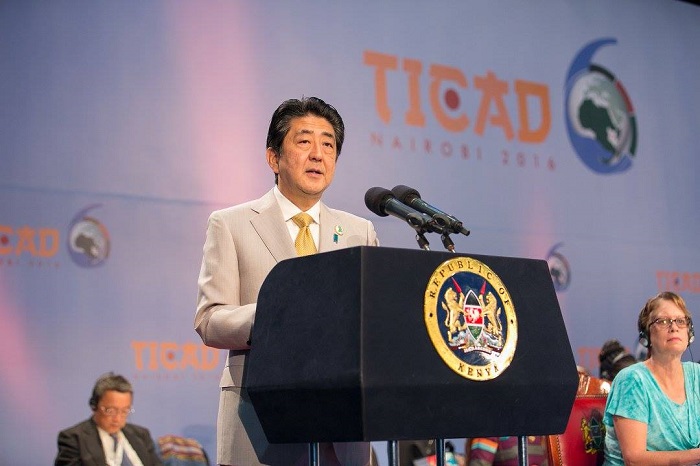
Nairobi, Kenya | AFP |
Japan will pour $30 billion of investments into Africa by 2018, including $10 billion in infrastructure development, Prime Minister Shinzo Abe said Saturday at a summit in Nairobi.
Abe is using the conference to meet dozens of leaders from across Africa, among them Kenya’s President Uhuru Kenyatta, Uganda’s Yoweri Museveni and South Africa’s Jacob Zuma. It is the first time that the Tokyo International Conference on African Development (TICAD) is being held in Africa, with all five previous events hosted in Japan.
“When combined with the investment from the private sector I expect the total real amount to be $30 billion (26.8 billion euros),” Abe said as the TICAD summit got underway.
That figure includes $9 billion yet to be spent from pledges made at the previous TICAD conference in 2013.
“This is an investment that has faith in Africa’s future,” he said.
The goal of the conference, organised jointly by the UN, the African Union, the World Bank and Japan, is to boost trade and aid to Africa, as Japan hopes that quality will trump quantity in the battle against cash-rich China for influence on the continent.
While Tokyo already has a well-established presence in Africa, its financial importance to the continent has long been eclipsed by regional archrival China.
‘Japan can grow vigorously’
The world’s second-largest economy — a resource-hungry giant — recorded total trade with Africa of about $179 billion in 2015, dwarfing Japan’s approximately $24 billion.
Some 30 African heads of state are taking part in the conference, which runs until Sunday.
Around 70 agreements are expected to be signed.
“We have a feeling in our gut that in Africa, where possibilities abound, Japan can grow vigorously,” said Abe.
“The wealthiest countries today, with very few exceptions, got rich by trading with others,” President Uhuru Kenyatta said at the conference.
Chad’s Idriss Deby, who currently chairs the African Union, noted that Africa’s economy had been badly affected by falling commodity prices, several conflicts and climate change.
“Our struggle for development cannot succeed without peace, stability and above all security,” he said.
Deby called on Africa’s partners to contribute to a counter-terrorism fund recently set up by the African Union and to help speed up economic growth, poverty reduction and promote better health care.
The World Bank and the Global Fund to Fight Aids, Tuberculosis and Malaria meanwhile pledged $24 billion over the next three to five years towards Africa’s efforts to achieve universal health coverage.
 The Independent Uganda: You get the Truth we Pay the Price
The Independent Uganda: You get the Truth we Pay the Price



